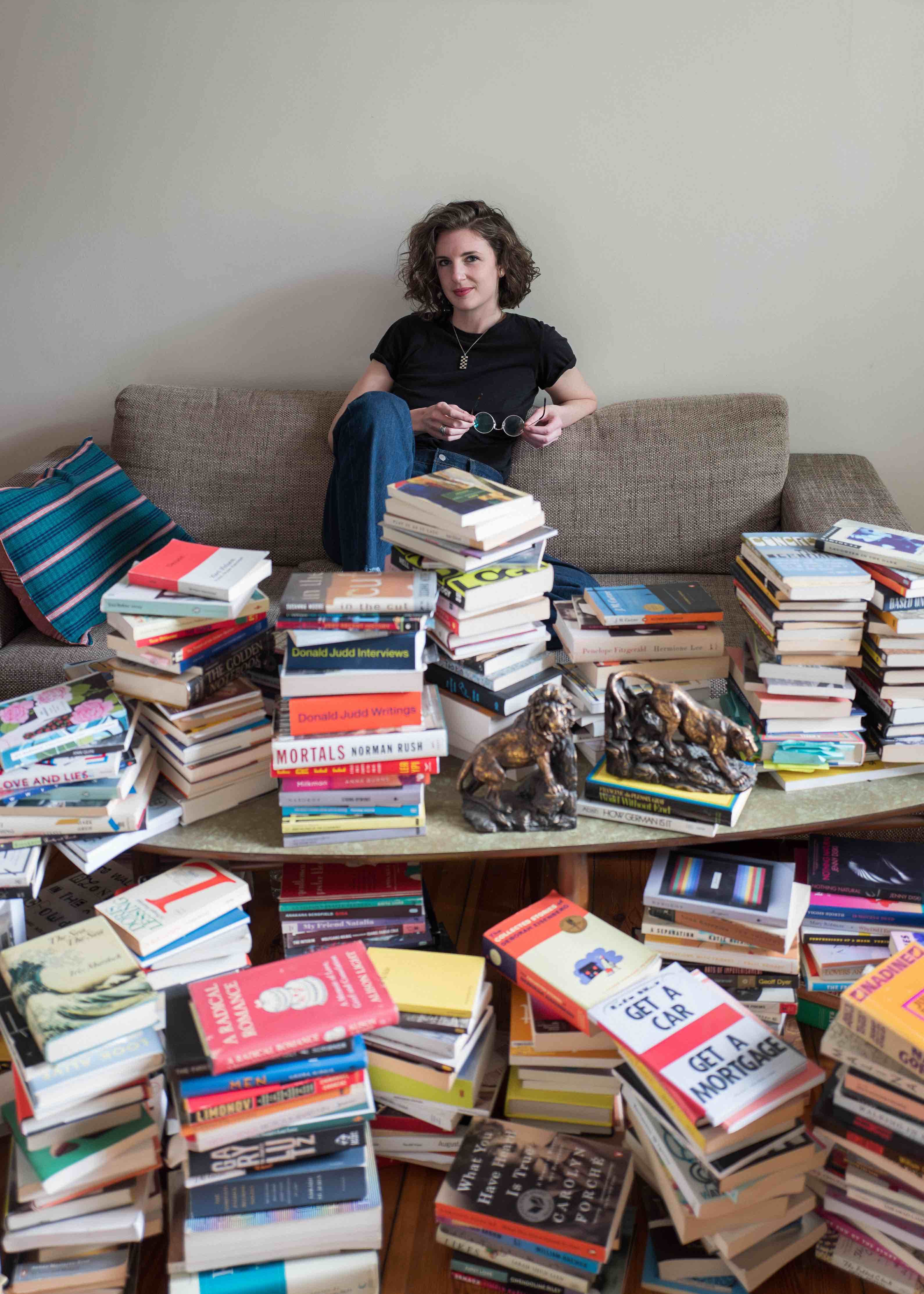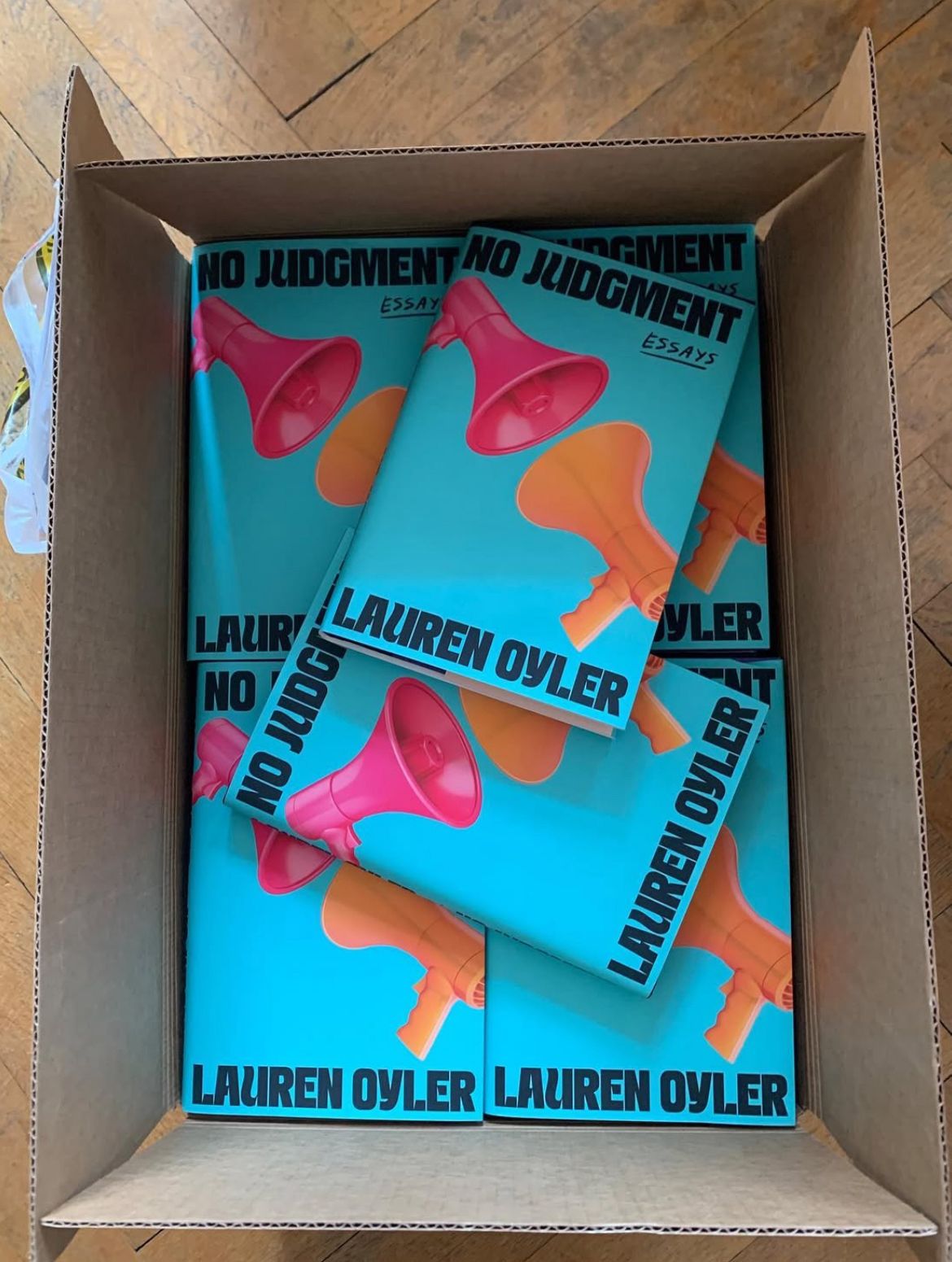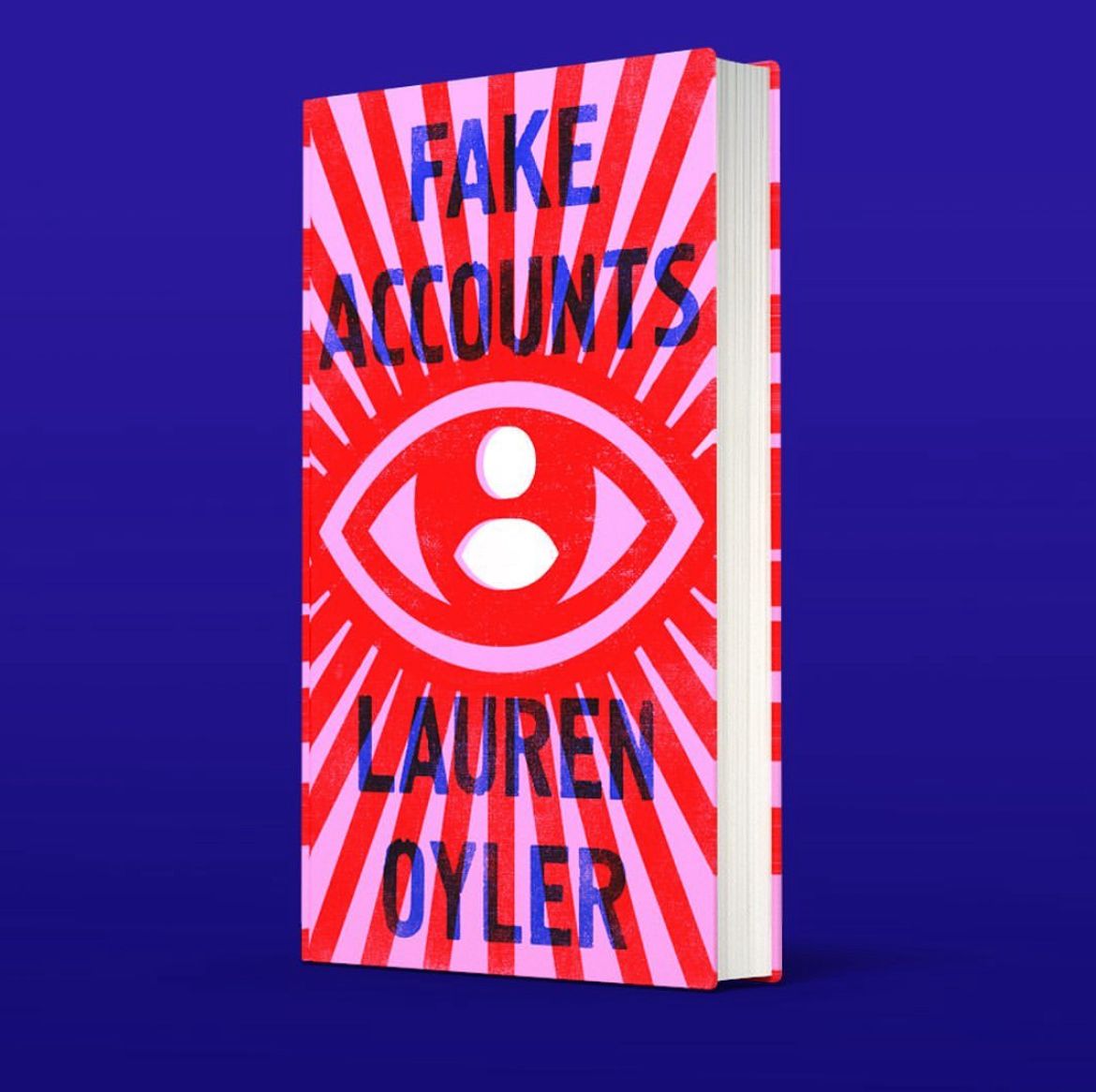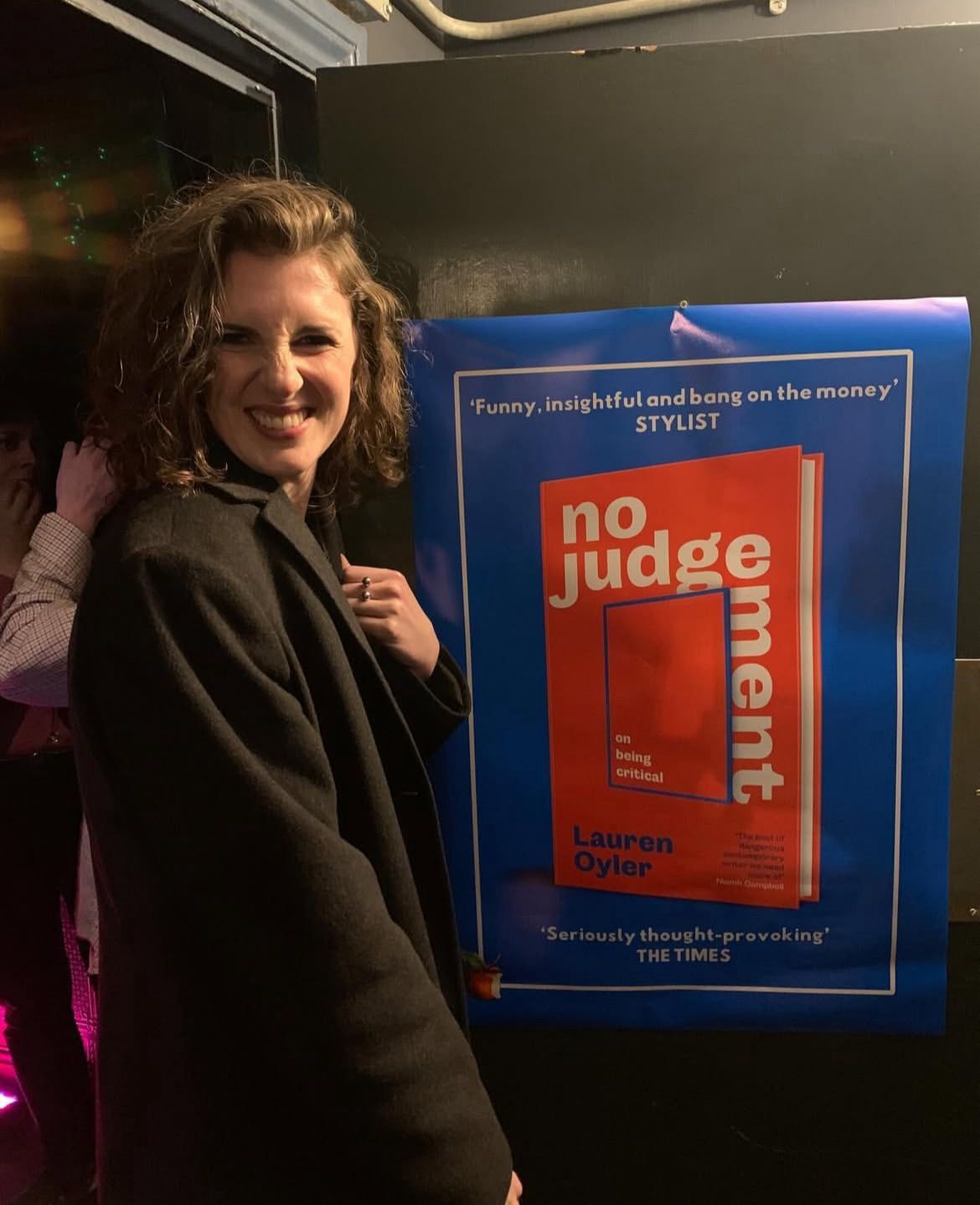Lauren Oyler Says No—And Sometimes Yes
|Shane Anderson
Lauren Oyler isn’t afraid to say no. No to the Goop cruise. No to the Republican National Convention. And no to literary darlings who write bad books. Author of the novel Fake Accounts (2021) and No Judgment (2024), Oyler became famous for her takedown of Roxanne Gay’s Bad Feminist (2014) at a time when it was more than taboo for a white literary critic to say anything bad about a writer of color. But as Oyler told Shane Anderson, she finds such taboos to be incredibly patronizing, racist, and sexist. Everyone should have the same standards and she hopes her takedowns are coming from a place where she’s challenging everyone to be better.
Anderson spoke to Oyler about being addicted to deadlines, learning from negative reviews, and things she actually likes.

Lauren Oyler, Photo: Carleen Coulter
Shane Anderson: Let’s talk a little about your trajectory. Where did it all begin?
Lauren Oyler: I’d say my trajectory is sort of paradigmatic for my generation of writers. Which is to say that I started by blogging and writing top ten lists—or listicles, a word that many people don’t like, which were so important in the digital world in the 2010s. I recently asked a person in their early 20s if they knew what a “listicle” was, and they had no idea. Oh well.
Anyway, I moved to Berlin in 2012 and a friend of mine was supposed to write a top ten list for Dazed but she couldn’t do it, so she asked me if I wanted to. I then started writing top ten lists for Dazed, where I got paid 25 pounds an article. They were all literary-themed—for some reason, they wanted literary listicles. I remember one was about Thomas Pynchon characters and another was about sad female poets. It was actually great because the research I had to do gave me a broad general knowledge about literature and contemporary literature in particular.
Then I started writing for Bookslut, which was run by Jessa Crispin. She had a blog for many years but then lost interest and asked me to take it over. So, I did that for a while and my big break came when I wrote this long negative review of Roxane Gay’s Bad Feminist, which I think Dazed commissioned but didn’t want to publish. Bookslut published it instead, and it went totally viral, since you weren’t supposed to criticize books, and particularly books by Black women, at the time.
Then I got a job at Vice and so on and so forth. I continued in this vein of publishing an incendiary review like maybe once a year, though not so much anymore.
SA: I remember that review being a big deal.
LO: I had just moved back to New York while I was writing it and people were telling me not to publish it. Once, I was at a house party where some guy told me that my career would be over. It worked out fine, though, I think because it wasn’t a hatchet job. It was really long and thorough. When I’d write these pieces, I’d labor over the book in a way that was really time-intensive. I’d spend so much time making sure I was reading it correctly. To use a popular term from this era, sometimes I’d feel gaslit by the book or by what people were saying about it, so I gave them close readings. But these terrible pop feminist books I was taking down aren’t meant to be close read. They’re meant to be skimmed and whimsically projected onto. And so, I’d go on Twitter to see what people said—
SA: You should never do that.
LO: Actually, I’ve gotten some good ideas of reading negative reviews of my work, even if it’s “toxic.” For example, in my book No Judgement, there’s an essay on vulnerability. It emerged from the reviews of Fake Accounts, where people were saying how the narrator and by extension I wasn’t “vulnerable” enough. I thought that was really sexist, but I wouldn’t have been aware of vulnerability as a buzzword if I hadn’t read those reviews. Then I started seeing it everywhere.
And, if I’m writing criticism or an essay, I take a lot of inspiration from being negative. I think that can be quite helpful to narrow the space you’re working in by saying: this is wrong, that is wrong, this is wrong. If I’m writing something that isn’t criticism—fiction, or reportage, say—I have in mind a lot of stuff that I “can’t” or don’t want to do because I’ve seen trends executed badly or lazily so many times, and while maybe that makes it harder to write in the short term, it means I am almost always proud of what I’ve done and I can go back to it without shame. But I think it’s important to say, I don’t only write negative reviews. It’s just that the other pieces don’t go viral.

No Judgment by Lauren Oyler
SA: How do you approach writing positive reviews?
LO: It’s usually much more personal. It’s much harder to write those pieces because you know people don’t want to read them as much, and it’s harder to come up with sentences or ideas that feel significant or lasting—critics tend to use very vague terms and abstractions and generalizations to accomplish praise, and that’s bad writing. But if you’re talking about something in positive terms, people just want to be recommended something, and to know why they’re being recommended it—e.g., it has “black humor” or something—and move on. That’s the nature of how we live now.
SA: You also did that piece on Sebald that wanted to be negative but wasn’t.
LO: Yeah, it was ambivalent. At the beginning I was like, “I hate Sebald” but by the end I begrudgingly respected him.
SA: You took us on a journey.
LO: I literally walked the Sebaldweg, but I want all the pieces to go on a journey. I don’t want to just bang the reader over the head with a thesis statement, which is so tedious. And also, we live in a time where people don’t want to read long form pieces. You have to force them to appreciate things, so it has to be exciting.
SA: Your work tends to be very expansive. They have both breadth and depth. It’s like an excavator and steamroller in one. Do you plan the form before you start writing?
LO: I mean, if you like structure, you’d have a panic attack if you saw my Word documents. There are all these random paragraphs and fragments in no order. And then, when it gets too overwhelming, the Spirit moves me to open a new Word document and I do it again. It’s this race-to-the-finish style of writing and if the piece is going badly, I’ve got like seven documents. But if it’s going well, then I’ll just have one or two. I think there’s something about my anxiety that requires high-pressure scenarios, where I can’t neurotically fixate on planning. I just have to do it, and it makes for these surprising moments or jumps that I would never structure in advance. As I’ve gotten older, I’ve come to accept that that’s how I work, and that’s how many of the good lines come to be.
SA: Do you ever wonder if you’re addicted to these pressure cookers?
LO: That is something I worry about. A couple of weeks ago, it was my friend’s 40th birthday, and I wanted to write him a funny poem for his birthday card. As a group, we got him a blacksmithing class for his birthday—no reason really—so I wanted the poem to have metallurgical themes. And I was so stressed out about writing this fucking birthday poem. I totally lost it. I was like, “I can’t do it. I have writer’s block.” And then, I was in Karstadt buying metallic pens to make the card with and it was 4:30pm. We had to leave at 6:00pm to meet him. And all of a sudden, it came to me, and I was on my phone, taking notes about all these metallurgy puns. I wrote the poem in 30 minutes and afterwards I was high as a kite. It was awesome. But I was like, I’m a drug addict. This is really, really bad. And I only noticed this because I had taken some time away from writing the two months before that. My friend came over to pick me up and asked what was wrong with me, and I was like, “my poem is so good.” But it was just a fucking birthday card.

Fake Accounts by Lauren Oyler
SA: Do you think it’s possible to have a healthier relationship to writing?
LO: It’s an unfashionable idea, but I do think people can change. I think you can change your habits, but you also have to be willing to. And the thing is, I actually kind of like it like this. There are all those people who are like “I read every day from 9 to 12, and then I have a special lunch and go for an hour walk” but I think they’re just neurotic and that it’s not something to be proud of. I’m proud I don’t have that approach to life. Sometimes other things are more important than writing, but also everything can potentially produce writing. Like buying metallic pens in Karstadt.
SA: What’s the relationship between your fiction, criticism, and journalism? I feel like the voice in Fake Accounts is not that different from No Judgment.
LO: The voice is close but the voice in Fake Accounts is a little bit eviler. It’s more of a performance. And I think my non-fiction voice is more relaxed, even though there are some grammatical flourishes—but that’s just how I write. But the subject position is someone who is observant and has a tendency towards cynicism or skepticism in both. It very strongly wants something good—I mean that broadly, in life—but it will not lie or sacrifice reality to that desire.
I also think that the forms all help each other. Reporting has been surprisingly good for the criticism and the fiction and the poems. I think a lot of literary people see journalism as a lesser art, but the skills you develop in an intense situation, taking notes all day and being totally present in the moment, are helpful. Who can I talk to? What’s happening? What’s he wearing? It all teaches you an eye for detail that some fiction writers have lost. It also teaches you the skills of the traditional novel, because you’re always looking for the story. So many writers today have disposed of the plot and there’s a lot of skepticism about the idea that our lives are structured by narrative—even though they are. We make narratives in our heads all the time. And when you’re doing reporting, that’s what you have to do. You have to be like “what’s the story? What’s the angle?” And then the poems I’ve been writing have helped me to be more direct or vulnerable—shout out to the haters.
SA: Do you prefer one form over another?
LO: I like writing fiction better because you can do anything as long as it works. It’s always surprising what happens in fiction, whereas in nonfiction, there are certain things you have to do in a magazine piece. You have to convey information in a certain order, usually. You also have to keep the reader’s interest and answer to the magazine editors, who are dictatorial, and you have to trick them into getting what you want.
SA: Given that they all feed into one another, what would you say are your overlying themes? What’s your main concern?
LO: Oh my God, I don’t know. I’d say that my concern is quite broadly contemporary life. Social media is also a theme, which people dismiss, saying that social media isn’t real. People say that less because of the way that social media has obviously influenced the U.S. government but the prejudice is still there. One of the core beliefs that drives my writing is that technology is reality. Even if it’s a delusion, it’s still real. You just need a way to articulate it. And that extends to all sorts of other situations or “technologies” that people say aren’t “real” or important. Everything is important, unfortunately.
What do you think my themes are?
SA: I’d add to what you said by suggesting that it’s about the ways that digital culture have social, emotional, or political consequences. It’s like you’re looking at a realm that everyone dismisses—
LO: And finding out how important it really is. Yeah, it’s about how digital culture affects emotional life or social dynamics. There is interiority, but there’s also an interaction with the outside.
I’d also say “the boyfriend” is one of my big themes. People never mention that, and that’s probably a win for feminism. But almost all of the pieces we’ve talked about have a boyfriend, or multiple boyfriends, in them.
SA: What writers do you feel closest to? You can also start with a listicle of ten people hate if you’d rather.
[Laughter]
LO: I think I’m quite similar to Philip Roth, actually. He’s not one of the most important authors to me in that I hadn’t read that much when I wrote Fake Accounts but I read a lot in the period immediately afterwards, and thought, “Oh, this is kind of what I’m doing as well.”
SA: How?
LO: I think it’s the mix of abrasive, confrontational humor and approach to structure. The way he approaches Jewish life in America is sort of analogous to the way I approach being a woman in America—or rather, an American woman. Also, the meta-fictional, almost auto-fictional relationship between Phillip Roth and his avatars, and his relationship to his public persona, is quite similar. There’s definitely a lineage there.
I also talk about David Foster Wallace all the time as someone who blends high and low registers. But then for my 20s, I only read books by women, and I really like Doris Lessing and Margaret Drabble and all these British mid-century women because they had this dry sense of humor and frankness about pain that I quite liked. Ben Lerner and Sheila Heti are my immediate predecessors that I really love.

Lauren Oyler with poster of the No Judgment (2024) UK cover
SA: You’ve also made an impassioned defense of autofiction.
LO: Yes, my 16,000-word defense of autofiction… that had been percolating for many years. There was a big group of contemporary novels that everyone loved that were autofictional, but at the same time critics were always ragging on the form: “but everything’s like that. Everything’s based on the author’s life! Boring narcissists!” But my argument in this essay is specifically that the autofictional novel is about the relationship between the author figure and the reader. It’s about the reader’s ideas about the author and the interplay between the reader and the author, who is creating these effects—even if they aren’t doing so entirely on purpose.
The term comes from the 70s in France and originally it just referred to any novel where the narrator or main character has the same name as the author. But my argument is that there are many ways to create live links between the person whose name is on the book and “the main character,” and those links are what distinguish a work of autofiction from a semi-autobiographical novel. All writers use material from their own lives, of course, but the confusion comes from the way we engage with the persona. Because the narrator or main character is a persona. It’s a performance. And we engage with that persona so differently now because of social media. Everyone wants the gossip, right?
SA: As a final question: any books you’ve loved or at least haven’t hated recently?
LO: Darryl by Jackie Ess was really good. Janet Hobhouse’s Dancing in the Dark from the 80s is great. But my favorite book recently is Flower by Ed Atkins. It’s published by Fitzcarraldo Editions and it’s really brilliant. It’s a kind of modernist, stream-of-consciousness memoir, but also neither of those terms is quite right. I haven’t really found the words to describe it but it’s so fucking great. And for all the social media addicts, it’s pretty short as well.
Lauren Oyler's book No Judgment (2024) is out now and available for purchase, along with her previous published work Fake Accounts (2021).
Credits
- Text: Shane Anderson